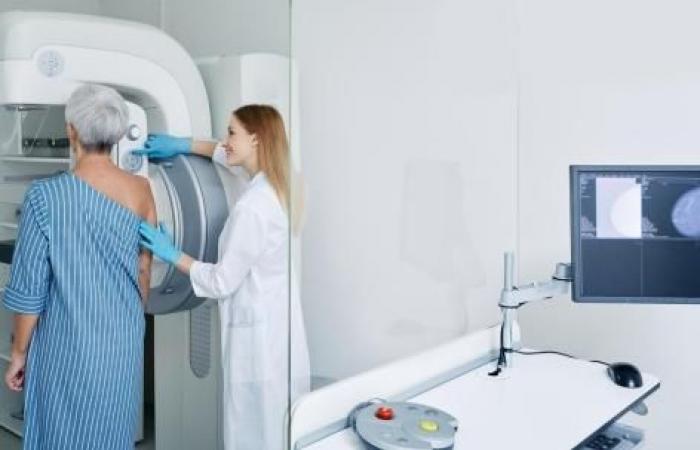THE ESSENTIAL
- Scientists have developed a new technique for detecting breast cancer at the earliest stage.
- The technique involves projecting a laser beam into blood plasma from tests carried out on patients, which is then analyzed by a spectrometer and interpreted by AI.
- This new technique has proven effective in 98% of cases.
60% of breast cancers are detected at an early stage, according to Panorama of cancers in France – 2024 edition. But this percentage could soon increase thanks to the work of researchers at the University of Edinburgh, Scotland, whose results were published in the journal Journal of Biophotonics.
AI blood test analysis
Their new technique for detecting breast cancer more precisely involves projecting a laser beam into the blood plasma collected – via blood tests – on female patients.
Next, a device called a spectrometer analyzes this interaction between light and blood. The goal is to find changes in the chemical composition of cells and tissues, two early indicators of breast cancer. Finally, last step: the interpretation of the results by an artificial intelligence (AI) algorithm which indicates a diagnosis.
Breast cancer screening is 98% effective
The researchers tested this device on 12 samples from patients with breast cancer and 12 people who were not affected by this disease. Results: The technique was found to be 98% effective in identifying stage 1a breast cancer, the very first stage of early breast cancer, according to the Canadian Cancer Society.
According to the researchers, this test could also detect four main subtypes of breast cancer with an accuracy of more than 90%. “Most deaths linked to this cancer occur when diagnosis is late, after symptoms appear, says Dr Andy Downes, one of the authors, in a communiqué. A future screening test for several types of cancer could therefore detect them at a stage where they can be treated much more easily.”
In France, breast cancer remains the first among women as well as the main cause of mortality with, for the year 2021, 12,600 deaths, according to the Panorama of cancers in France. “Early diagnosis is essential for long-term survival, and we finally have the technology needed, emphasizes Dr. Andy Downes. We just need to apply it to other types of cancer and create a database, before it can be used as a multi-cancer test.”
In the future, scientists plan to continue their work, including more participants in their clinical trials.






